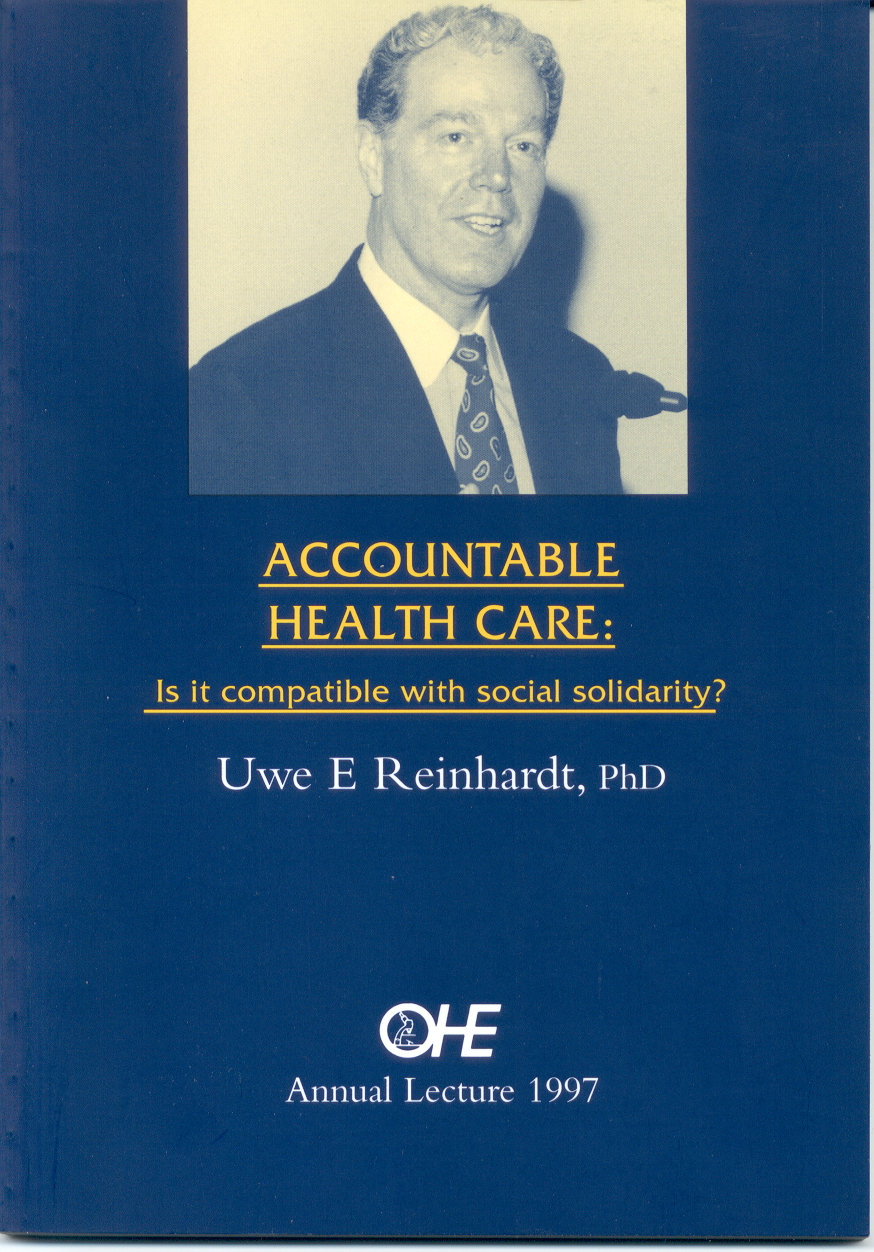Sign up to our newsletter Subscribe
Challenges and Solutions for Budget Impact Analysis of Gene Therapies

If a dart were thrown at a map of the world and one identified the national capital nearest the dart, the following would be a safe prediction: somewhere in that capital a task force is busily at work on yet another a blueprint…
If a dart were thrown at a map of the world and one identified the national capital nearest the dart, the following would be a safe prediction: somewhere in that capital a task force is busily at work on yet another a blueprint for health-care reform. The prediction is safe because, at any time, in any nation, there is widespread malaise over that nation's health system. Furthermore, the alleged shortcomings of the current system are everywhere the same.
Those who book health spending as an expense believe that the system could and should deliver much more 'value' for the money. In the United States one speaks bluntly about the widespread 'waste, fraud and abuse' in the system. Germans, ever eager not to offend, more delicately call it Wirtschaflsrcserucn (economic reserves). The British speak of ' inefficiency '.
Juxtaposed to those who lament waste and abuse stand physicians and other providers of health care — those w h o book health spending as income. These providers' feel underfunded and unappreciated, for they are paid so much less than the enormous value they believe they create. They hold out the promise of even greater value, were they more generously funded.
Remarkably, the allegations of waste, on the one hand, and of underpayment, on the other, seem independent of the actual level of national health spending. We hear these complaints in the United States, which spends over 14 per cent of its gross domestic product (GDP) on health care (see Figure 1); but we also hear them in the United Kingdom, which spends a pittance by American standards (less than 7 per cent of GDP). We hear them in Canada and all over the European continent, where spending levels mostly range between 8 to 10 per cent of GDP, and we even hear them in the Asian nations, whose health spending still tends to be below both European and American standards. The malaise over health care seems a permanent part of the human condition.
The sources of this perennial malaise are explored in Section II, where it is proposed that, try as we might, we shall never escape from that malaise. The idea that 'the market' could extricate us elegantly and 'efficiently' from our problems appeals more at the level of abstract theory than where the proverbial rubber hits the road, because the general public finds it so difficult to live with the harsh distributive ethic embedded in applied market theory.
Indeed, as I shall argue in Section III, the term 'efficiency' itself has meaning only relative to a well defined goal. A prominent dimension of the goal one might posit for a health system surely is the distributive ethic that system is to observe. Because market-driven health systems typically are not oriented toward the egalitarian ethic that is being pursued by, say, the British National Health Service or the government-run Canadian health-insurance system, one cannot compare market-driven health systems with these government-run systems in terms of their relative 'efficiency'. Although that point should be obvious to any thoughtful person, it is overlooked with distressing regularity in the debate on health policy.
After considering the contribution of 'managed care' to greater accountability on the part of providers in Section IV, I shall turn to a review of the elegant theory of 'managed competition' and it’s so much less elegant current practice in the United States in Section V. I shall then ruminate in Section VI on the oddity that so many Americans now judge the American health system fit for export to the rest of the world, in spite of the manifest misgivings Americans themselves voice over that system. Even more mysterious is the widespread acceptance of that judgement in many other parts of the world.
In Section VII, I shall offer some commentary on health policy in the United Kingdom, albeit rather bashfully, as the mixed performance of the American health system hardly furnishes an American with a robust platform from which to preach to the rest of the world.
The essay concludes, in Section VIII, with a broad review of the three distinct reform models that now vie for the policy makers favour everywhere — models that distinguish themselves from one another mainly by the role they would assign to the recipient of health care and by the allocation of the fiscal burden of illness among members of society.
Accountable Health Care: Is it compatible with social solidarity?
Reinhardt, U.
(1998) Accountable Health Care: Is it compatible with social solidarity?. OHE Monograph. Available from https://www.ohe.org/publications/accountable-health-care-it-compatible-social-solidarity/

